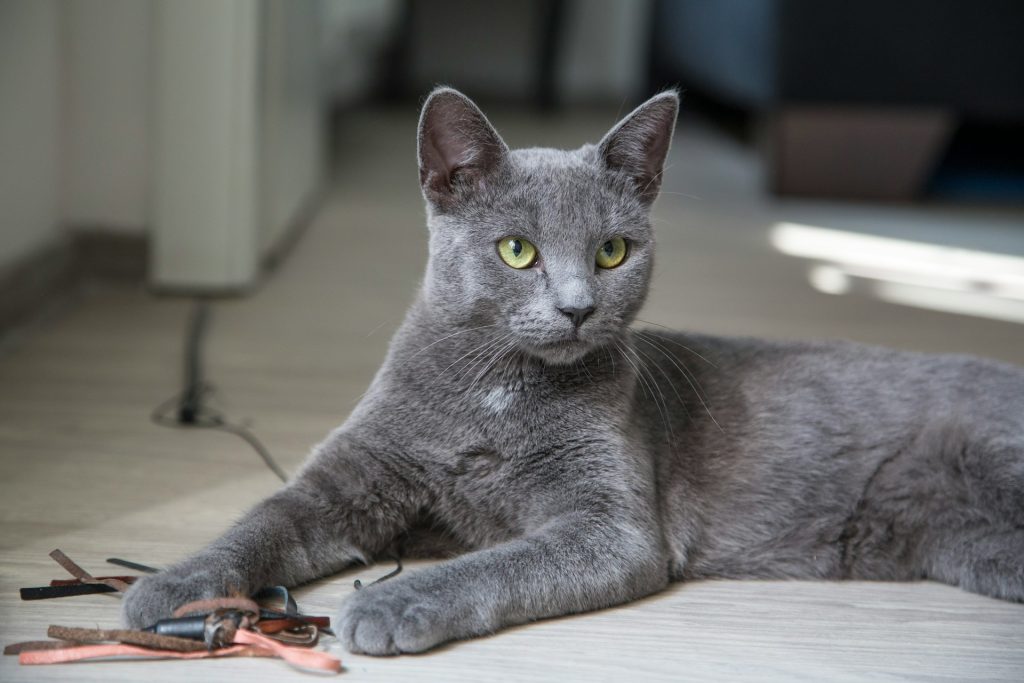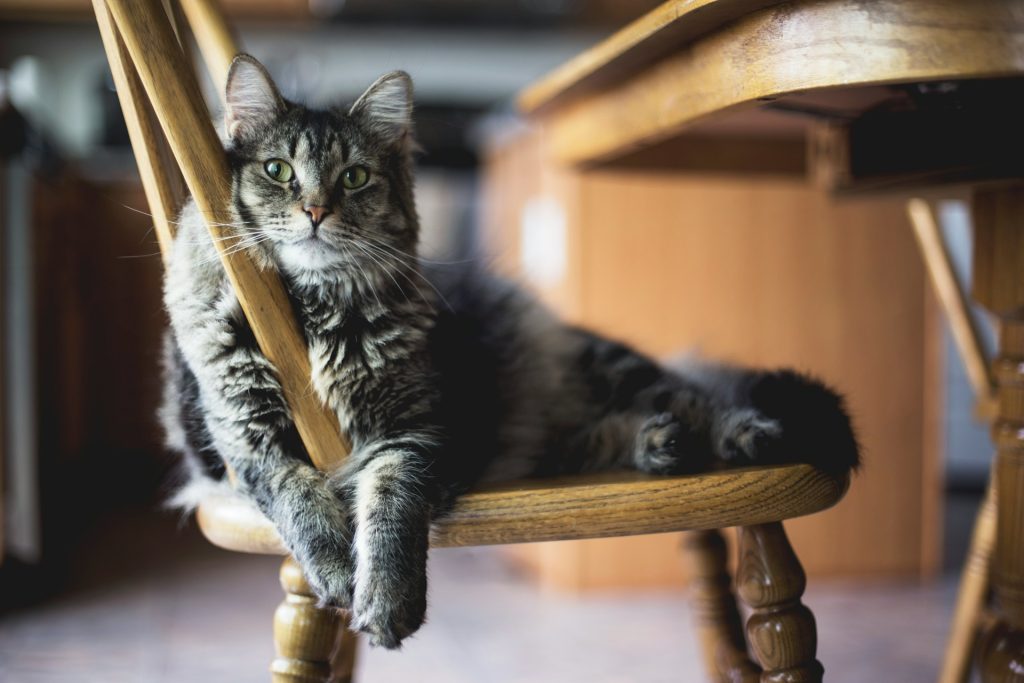Table of Contents
When your cat throws up undigested food, it can be an unsettling sign that something is amiss with their digestive system. Cats vomit for various reasons, ranging from simple to complex health issues. Observing your feline’s eating habits and the frequency of these episodes is essential. If your cat is regurgitating food soon after eating, it could point to issues such as eating too quickly or difficulty with food allergies. In contrast, vomiting in cats that occurs hours after feeding may indicate a deeper issue within the cat’s body.
Feeding your cat appropriately and ensuring they are not ingesting harmful substances is crucial for their overall health. Puzzle feeders can slow down a cat’s eating pace, potentially reducing instances where a cat vomits undigested food. Senior cats, in particular, may have sensitive digestive systems or underlying health conditions contributing to regurgitating food. If you notice frequent vomiting, it is imperative to seek veterinary advice to rule out serious conditions.
When a cat regurgitates undigested food, it may be a sign that their body is rejecting the cat’s food before it can be properly digested. Whether due to food allergies, rapid cat eating, or another underlying health problem, it’s important to address the issue promptly. A visit to the veterinary clinic can provide insight into the cause and appropriate treatment to ensure your cat’s well-being.
Deciphering Cat Vomiting: What You Need to Know
Cat owners often find themselves puzzled by the frequency and nature of their pets’ vomiting. Occasional vomiting may not be alarming, but frequent vomiting is certainly not a normal feline behavior and should be taken seriously. It’s important to monitor for signs of illness, such as lack of appetite or additional symptoms like weight loss or lethargy, which can accompany vomiting. These signs can indicate a more pressing health concern that requires attention.
If your cat continues to vomit, especially if it’s more than once a week, this is considered frequent vomiting and you should consult your veterinarian. Intestinal parasites or other internal issues could be at play, and a thorough examination by your vet is in order. Early detection and treatment can make a significant difference in the outcome of your feline friend’s health.
The Definition of Vomiting in Felines
Vomiting in cats is a reflex action where the stomach forcefully expels its contents through the mouth. This process is an active one, typically accompanied by signs such as retching and abdominal heaving. When a cat vomits, the stomach content, which may include undigested food, water, and bile, is ejected. It’s a clear indication that something has disrupted the normal digestion process after the cat’s body has begun to break down the food.
Understanding the mechanics of vomiting can help cat owners identify when their pet is experiencing a digestive issue versus a simple upset stomach. It is essential to observe the consistency and frequency of vomit to provide accurate information to your veterinarian, aiding in the diagnosis and treatment of your cat’s condition.
Regurgitation vs Vomiting: Identifying the Difference
It’s crucial to differentiate between regurgitation and vomiting, as they are often confused yet signify different issues. Regurgitation involves the ejection of undigested food from the esophagus or throat, often without much effort, and is not an active process. Regurgitated food is typically in the same shape as when the cat ate it, as it hasn’t been digested or mixed with gastric acids. This can occur shortly after a cat eats and does not involve the typical signs of nausea or heaving accompanying vomiting.
On the other hand, vomiting is an active process that is typically accompanied by telltale signs such as drooling, licking lips, and abdominal contractions. Understanding these distinctions is crucial for veterinary diagnosis and will impact the course of treatment recommended for your feline companion.

Unraveling the Mysteries Behind Your Cat’s Upset Stomach
Several factors can contribute to an upset stomach in cats, from food allergies to dietary indiscretion. Cats with food allergies may react negatively to specific ingredients in their food, often a protein source. An immune system response can lead to inflammation and vomiting. A hydrolyzed diet, where the protein is broken down into amino acid components, can prevent the immune system from recognizing the food as an allergen, thereby reducing the incidence of adverse reactions.
The Perils of Eating Too Quickly
When they eats too quickly, they may end up swallowing large amounts of air along with their food, leading to an upset stomach. This can result in vomiting or regurgitating shortly after a meal. Cats that rush their meals often do so due to competition from other pets or inconsistent feeding schedules that create a sense of urgency around mealtime.
To prevent this, cat owners should consider establishing a regular feeding routine and using methods such as puzzle feeders to slow down their cat’s eating pace. These strategies can help mitigate the perils of eating too quickly and promote healthier digestion, reducing the likelihood of vomiting or regurgitating due to an upset stomach.
Dealing With Food Allergies and Sensitivity
Cats with food allergies or sensitivities may experience vomiting as a reaction to certain ingredients in their food. The immune system of an allergic cat sees a particular food component, typically a protein, as a threat, leading to an inflammatory response that can result in vomiting. This adverse reaction can make it challenging to ensure that a cat receives the nutrition they needs without triggering an allergic episode.
Switching to a hydrolyzed diet, which features hydrolyzed protein broken down into amino acid components, can be beneficial. This process makes the protein less likely to trigger the immune system, thereby reducing the chances of an allergic reaction. If your cat vomits after meals and you suspect a food allergy, consult your veterinarian for a diagnosis and dietary recommendations.
The Impact of Sudden Dietary Changes
Introducing a new type of cat food abruptly can upset your cat’s stomach, leading to vomiting or regurgitation. It’s crucial to transition your cat to new food gradually, mixing increasing amounts of the new food with the current one over a week or two. This approach allows the digestive system to adjust without causing undue stress that can manifest as vomiting.
When changing your cat’s diet, it’s essential to watch for any adverse reactions, such as vomiting or regurgitation. If these symptoms persist, it’s best to consult your veterinarian to rule out any other potential causes and to ensure the chosen cat food is suitable for your pet’s specific needs.
The Troublesome Hairball Issue
As part of their grooming process, cats ingest loose fur, which can accumulate in the gastrointestinal tract and form hairballs. While it’s a common issue, these hairballs can lead to discomfort and may cause your cat to vomit undigested food along with the clumped fur. Identifying hairballs as the cause of vomiting is often straightforward, as the expelled material usually contains visible strands of fur.
To help prevent the formation of hairballs, regular brushing can reduce the amount of loose fur your cat ingests. Additionally, some cat foods are formulated to improve gastrointestinal tract health and facilitate the passage of hair through the digestive system, minimizing the likelihood of hairball-related vomiting.
Examining Common Causes of Feline Vomiting
Chronic vomiting in cats can be symptomatic of a range of health issues, including kidney disease, liver disease, and inflammatory bowel disease. These conditions often involve inflammation of the stomach or gastrointestinal tract, which can lead to persistent vomiting. A foreign body ingested by the cat, such as string or toys, can cause gastrointestinal obstructions, leading to chronic vomiting if not promptly addressed.
Understanding the feline’s condition is essential for providing the appropriate care. If you observe your cat exhibiting chronic vomiting, it’s crucial to seek veterinary assistance to diagnose and treat any potential underlying causes. Vets may recommend diagnostic tests to pinpoint the exact cause of vomiting and provide targeted treatment to alleviate your cat’s discomfort.
Inflammatory Gastrointestinal Conditions
Reasons why cats experience vomiting can include inflammatory gastrointestinal conditions that disrupt normal digestion. Cats may ingest non-edible items out of curiosity, but these can become lodged in the GI tract, impeding the passage of food and causing vomiting. If your cat ate something they shouldn’t have, it’s imperative to contact a veterinarian immediately, as this may require surgical intervention.
Inflammatory conditions, such as pancreatitis or esophageal irritation, can lead to vomiting. These conditions can be painful and distressing for your cat, requiring professional medical attention to manage the symptoms and underlying causes effectively.
The Threat of Gastrointestinal Obstructions
Gastrointestinal obstructions are serious reasons why cats may vomit undigested food. Non-edible items like toys or string, if ingested, can become stuck in the GI tract, preventing normal digestion and leading to vomiting. If you suspect your cat ate a foreign object, it’s crucial to seek veterinary care as soon as possible, as this can be a life-threatening situation that may necessitate surgical removal.
Early detection and treatment of gastrointestinal obstructions are vital to prevent further complications and ensure a swift recovery for your cat. Regular monitoring of your cat’s environment and preventing access to small objects that can be ingested are proactive steps to avoid such emergencies.
Exploring the Possibility of Toxins
Accidental ingestion of toxins can also lead to vomiting in cats. Common household substances like certain plants, chemicals, or human medications can be toxic to cats if ingested. Observing changes in behavior or health following exposure to potential toxins is crucial, as prompt veterinary intervention may be required to treat poisoning.
If you suspect your cat has ingested a toxin, it is essential to identify the substance and contact your veterinarian or an animal poison control center immediately. They can provide guidance on the necessary steps to take, which may include inducing vomiting or administering activated charcoal to prevent further absorption of the toxin.

The Final Say on Feline Vomiting: What to Do Next
If your cat is experiencing vomiting episodes, the best action is to monitor their behavior and health closely. Note the frequency and appearance of the vomit, and check for any accompanying symptoms that may indicate a more serious condition. If vomiting persists, or if you are concerned about your cat’s well-being, do not hesitate to contact your veterinarian for guidance.
In the meantime, you can take steps to help your cat by ensuring they have a calm environment, a consistent diet, and access to clean water. Implementing food puzzles to slow down eating can also be helpful. Your veterinarian can provide further recommendations based on your cat’s specific situation and help you navigate the path to recovery, ensuring your cat’s comfort and health.
The Path to Recovery: Ensuring Your Cat’s Comfort and Health
Recovery from vomiting involves a combination of veterinary care and attentive home management. Following your veterinarian’s instructions for medication and dietary adjustments is paramount. At home, create a stress-free environment to help your cat feel secure and comfortable. This includes minimizing loud noises, sudden movements, and disruptions in their routine.
Pay attention to your cat’s hydration, offering fresh water and encouraging drinking. Keep a close eye on your cat’s behavior, appetite, and litter box habits, and report any abnormalities to your veterinarian. With the right care and attention, most cats can recover from vomiting episodes and enjoy a good quality of life.
Wrapping Up: Reassurance for Pet Owners Facing Feline Vomiting
When a cat is throwing up food, it’s natural for pet owners to feel concerned. Understanding that vomiting can be a symptom of many different conditions, from the benign to the serious, is crucial. Cat feeders with adjustable settings might help cats with sensitive stomachs by providing smaller, more frequent meals, which can prevent overeating and reduce vomiting episodes. Good observation and prompt action can mitigate the issue before it becomes more serious.
For persistent problems, veterinarians have a range of tests to diagnose the underlying cause of a cat’s vomiting. Once a diagnosis is made, a tailored treatment plan can be established. With proper care and attention to diet and health, many cats can return to their normal, playful selves. Pet owners can take comfort in knowing that with the right approach, their feline friends will receive the care they need.

Hi, I’m Zoey, a devoted mom to two charming Siamese cats. My passion lies in assisting fellow pet owners in providing optimal care for their cats. On CatsEuphoria, I share practical tips and relatable stories, inviting you to join me in appreciating the authentic bond between humans and our beloved feline companions.




